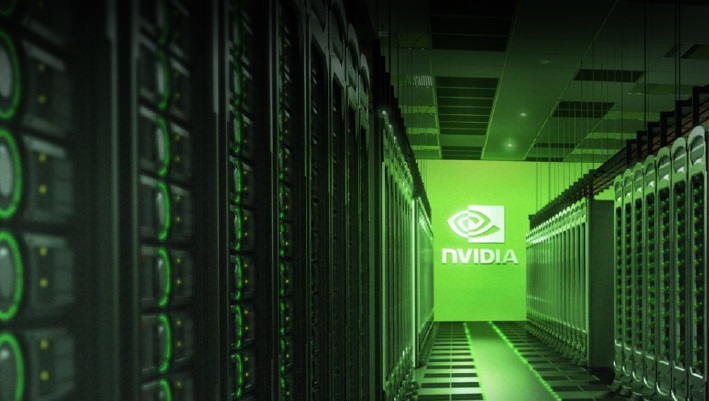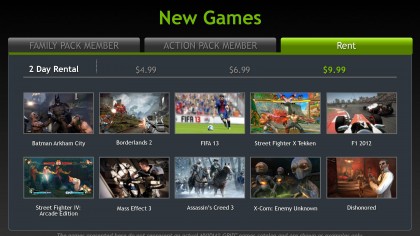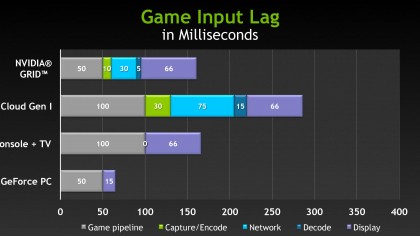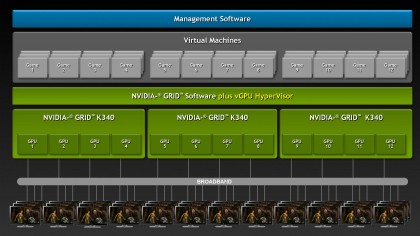How Nvidia Grid is set to revolutionise cloud gaming
Providing the backend technology for the cloud

Like music and movies, gaming is also on an irreversible move into the cloud. Thanks to OnLive, the concept of cloud gaming isn't alien, but widespread cloud gaming has bumped up against technology problems – latency, plus the need to make games available across a plethora of devices.
Nvidia thinks it has the answer with Nvidia Grid, cloud gaming technology that works behind the scenes of subscription-based games services. It's already being tested across Nvidia's own international server network and is already active, powering casual cloud gaming in some territories.
Grid is very much in the early stages, although Nvidia has already announced partnerships with streaming companies such as Gaikai.
"We look at cloud gaming as the best way to deliver on a couple of things that gamers want," says Andrew Fear, senior product manager for Nvidia Grid.
How Grid will be used
"The first is multi-device gaming. A lot of gamers want their games on multiple platforms and cloud gaming is a great way to do that, you can develop on one platform, stream from the server and get it on any device you want. It enables games on subscription as an option."
And it's that subscription market that Nvidia wants to get involved with through Nvidia Grid. But who will sell games on subscription?
Nvidia envisages that, while it will provide the backend technology (Grid servers including Kepler-based Grid graphics cards to data centres) and middleware partners like Playcast, Ubitus, G-Cluster, Cybercloud or Agawi will sort the software side, it won't be them selling the games to people like you and me.
Are you a pro? Subscribe to our newsletter
Sign up to the TechRadar Pro newsletter to get all the top news, opinion, features and guidance your business needs to succeed!
Instead this will be the job of telecoms companies, ISPs or broadcasters who will sell these services to customers. For example, satellite, cable or internet providers who already provide you with your internet and phone line may well decide it's worth bundling an unlimited game subscription service with their existing package for an added fee.
Simple streaming
The key to Grid is that it relies on something rather simple – the streaming of H.264 video. "All you really need to have on the client side is something that can decode H.264," explains Fear. "So it could be a TV, desktop, notebook, smartphone, whatever. And you can connect a controller via USB or Bluetooth so for the most part every device you've bought in the past year is a potential cloud gaming device."

Fear agrees when we suggest that latency remains a huge deal, primarily because of end users' own connections. "It's one of the biggest challenges that cloud gaming faces," he says. But he argues that Grid is ideally placed to banish the problem.
Fear says that Grid can halve the Game Input Lag experienced with first generation cloud gaming services (around 300ms) thanks to newer GPU technologies that enable streaming straight from the GPU rather than having to be copied to a frame buffer. Existing speeds can cope with strategy games and other genres where reaction times don't have to be that quick.

Fear says that there is a lot of work going into Grid. "We've learned a lot from our supercomputing outreach and then we combine this with software we've developed to do a lot of different things.
"There's also virtualising the GPU and being able to split it up into different resources, really fast capture and encode, accelerating the GPU, working with our game developers to have all these amazing titles available and then around the world we've got software developers working on building out Grid."

"What's really amazing about cloud gaming is that you can play instantly. What we're doing is having these dedicated servers where the game is rendered in real time like you would if you were playing it locally and then we encode it in real time into a digital video stream.
Dan (Twitter, Google+) is TechRadar's Former Deputy Editor and is now in charge at our sister site T3.com. Covering all things computing, internet and mobile he's a seasoned regular at major tech shows such as CES, IFA and Mobile World Congress. Dan has also been a tech expert for many outlets including BBC Radio 4, 5Live and the World Service, The Sun and ITV News.